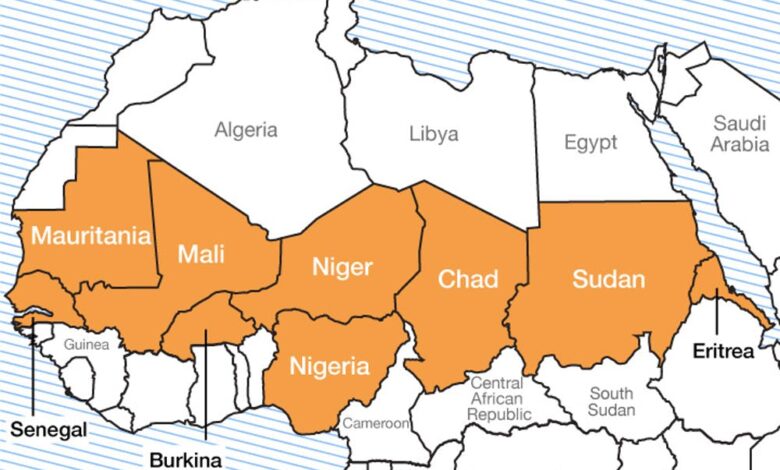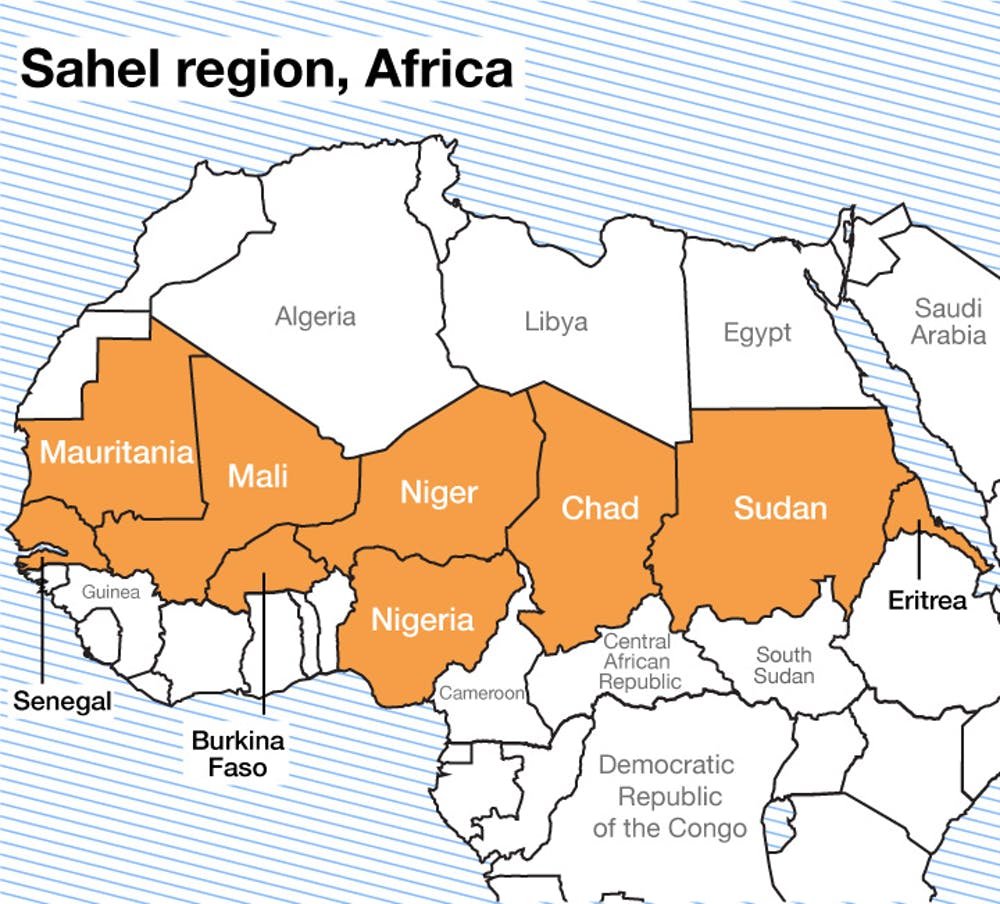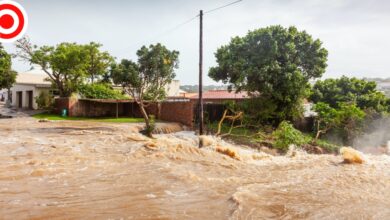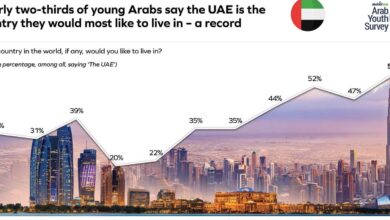
Mauritania A Sahel Stability Beacon
Mauritania is a beacon of stability in the coup prone sahel – Mauritania is a beacon of stability in the coup-prone Sahel. While much of the region grapples with instability and conflict, Mauritania stands as a relative outlier, a surprising success story in a challenging environment. This relative peace isn’t accidental; it’s the result of a complex interplay of political shrewdness, economic diversification, social cohesion, and strategic security policies. Let’s delve into the factors that have contributed to Mauritania’s remarkable resilience.
This post explores Mauritania’s unique journey, comparing its political landscape, economic strategies, and social dynamics to its neighbors. We’ll examine the role of natural resources, international partnerships, and the country’s approach to security challenges in maintaining stability. We’ll also look at potential vulnerabilities and the strategies employed to mitigate them, offering a nuanced perspective on this fascinating and often overlooked nation.
Mauritania’s Political Landscape: Mauritania Is A Beacon Of Stability In The Coup Prone Sahel

Mauritania’s relative stability in a volatile Sahel region is a compelling case study in political development. While neighboring countries have experienced numerous coups and periods of instability, Mauritania has maintained a largely consistent governmental structure, albeit with its own challenges. This stability, however, isn’t simply the result of luck; it’s a product of a complex interplay of historical factors, political maneuvering, and specific government strategies.
Historical Context of Mauritania’s Political Development
Mauritania’s path to relative stability is rooted in its unique historical trajectory. Unlike many Sahel nations that experienced abrupt transitions from colonial rule to independence, Mauritania’s independence process was more gradual and less turbulent. The country’s predominantly nomadic and tribal society, while posing challenges to nation-building, also fostered a degree of decentralized power that mitigated the risk of centralized authoritarianism.
The early years of independence saw a succession of military coups, but the subsequent establishment of a multi-party system, albeit with periods of military influence, has provided a framework for political competition and, importantly, a degree of institutional continuity. The transition from military rule to civilian governance, though imperfect, has been more orderly compared to its neighbors.
Comparative Analysis of Mauritania’s Political System, Mauritania is a beacon of stability in the coup prone sahel
Compared to its Sahel neighbors, Mauritania presents a contrasting picture. Countries like Mali, Burkina Faso, and Niger have experienced repeated military coups and protracted periods of instability, often fueled by ethnic tensions, rebellions, and weak governance structures. Mauritania, while not immune to internal challenges, has demonstrated a greater capacity for managing these issues and maintaining a functional, albeit often imperfect, democratic framework.
This resilience is partially attributable to a more effective and less fractured military, a more established civil service, and a greater degree of political inclusivity, though this inclusivity remains uneven. The role of traditional leaders and tribal structures in mediating political conflicts also plays a crucial role, providing a layer of social cohesion absent in some other Sahel nations.
Government Policies Promoting Political Stability
Several government policies have actively contributed to Mauritania’s relative stability. A focus on economic development, albeit with uneven distribution, has aimed to alleviate poverty and reduce social grievances that can fuel instability. The government’s efforts in promoting education and healthcare, while still facing significant challenges, have improved human capital and contributed to a more stable society. Moreover, Mauritania has engaged in regional diplomacy and international cooperation, fostering relationships with key international partners to secure financial and political support.
While the success of these initiatives is debatable, their presence and continued effort represent a commitment to stability that is not consistently mirrored in other Sahel nations.
Governance Indicators: Mauritania vs. Other Sahel Countries
| Country | Corruption Perception Index (CPI) | Press Freedom Index | Political Stability Index |
|---|---|---|---|
| Mauritania | Data varies, consult Transparency International | Data varies, consult Reporters Without Borders | Data varies, consult World Bank/ other relevant sources |
| Mali | Data varies, consult Transparency International | Data varies, consult Reporters Without Borders | Data varies, consult World Bank/ other relevant sources |
| Niger | Data varies, consult Transparency International | Data varies, consult Reporters Without Borders | Data varies, consult World Bank/ other relevant sources |
| Burkina Faso | Data varies, consult Transparency International | Data varies, consult Reporters Without Borders | Data varies, consult World Bank/ other relevant sources |
Mauritania’s success in maintaining stability in a volatile region isn’t just a matter of luck; it’s a testament to proactive governance, strategic economic planning, and a commitment to social harmony. While challenges remain, Mauritania’s experience offers valuable lessons for other Sahel nations struggling to find their footing. It’s a compelling case study in how a nation can navigate complex political, economic, and social landscapes to build a more secure and prosperous future.
The journey isn’t without its hurdles, but Mauritania’s relative stability shines as a hopeful example in a region desperately needing it.
Mauritania’s relative stability in the turbulent Sahel is truly remarkable. It makes you think about the dynamics of political power, and how even seemingly minor disagreements can have huge impacts. Check out this article on how Minnesota Governor Walz and Attorney General Vance walz and vance have a civil go at one another – it highlights how even in more stable contexts, political discourse can be tense.
The contrast with Mauritania’s consistent avoidance of coups is striking, showing how different factors contribute to stability.
Mauritania’s relative stability in the turbulent Sahel is fascinating, especially considering its history. Understanding the long-term population movements and adaptations within the region could offer valuable insights, which is why I found this article on what can ancient dna reveal about life today so compelling. Perhaps ancient DNA holds clues to Mauritania’s resilience and its ability to navigate the challenges of the Sahel.
It’s a compelling thought, given the ongoing instability in neighboring countries.
Mauritania, a relative oasis of stability in the turbulent Sahel, offers a stark contrast to the chaos unfolding elsewhere. The devastating situation in Sudan, as highlighted in this report on anarchy in sudan has spawned the worlds worst famine in 40 years , underscores the fragility of peace in the region. Mauritania’s resilience, however, provides a glimmer of hope amidst the widespread instability.





